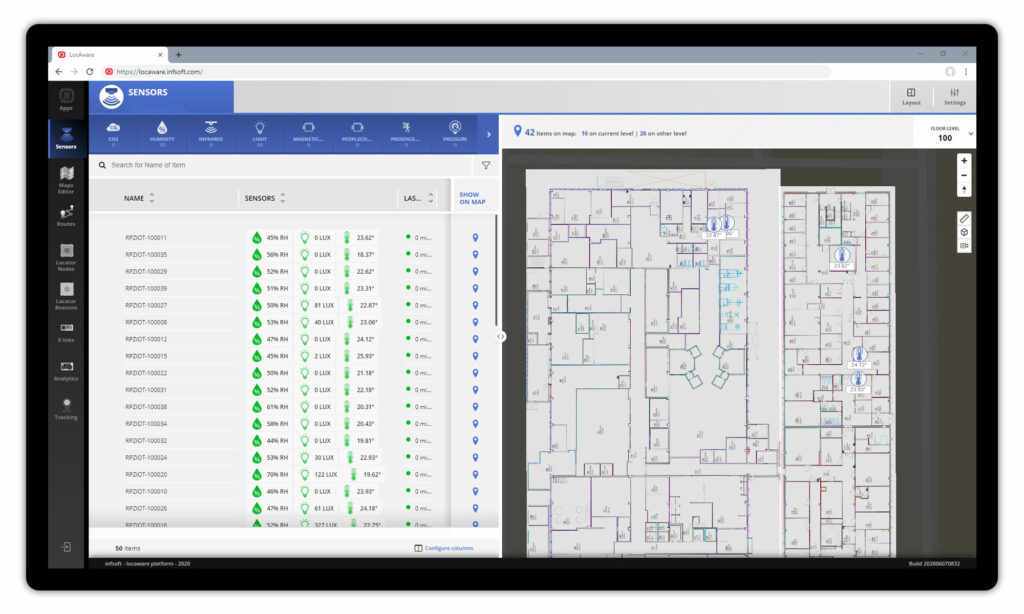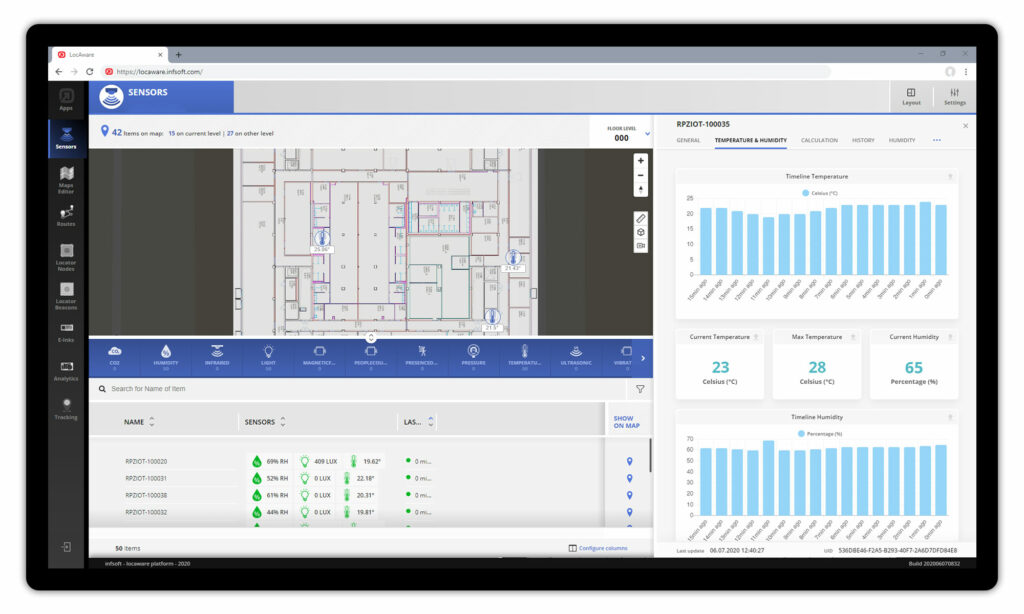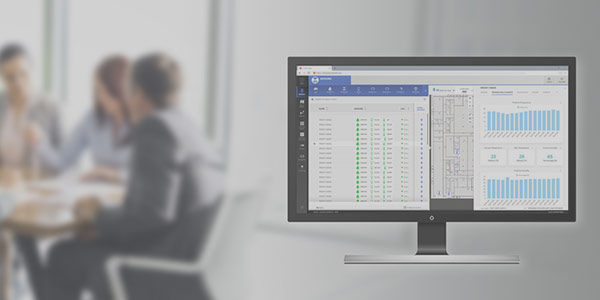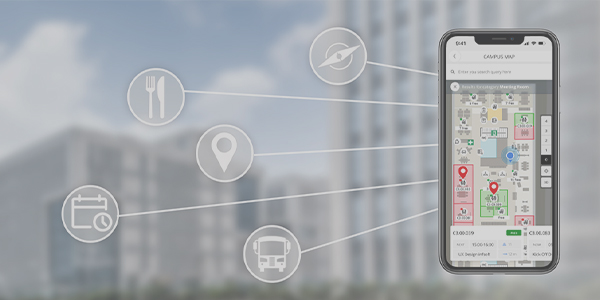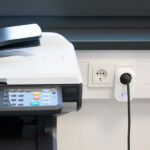infsoft Sensors
infsoft Sensors visualizes condition capturing sensor devices on the map and enables real-time monitoring of status information (light, temperature, pressure, humidity, CO2, infrared, ultrasound, etc.). The tool can also gather information on room occupancy based on presence monitoring. Following “smart room” concepts, the state of a room can be continuously monitored and processes can be automatically controlled on the basis of rule-based decision making. Linked with infsoft Automation, automated actions can be triggered based on measurement results, e.g. sending notifications when a device reaches a certain condition or exceeds defined values.
Location- and time-related analyses allow for a well-founded data evaluation. The comfortable search offers the user a clear display and simple filter options. When gathering sensor data, there is no collection of any kind of personal data.
The data from infsoft Sensors can also be used in third-party systems via Web Services.
Real-time condition monitoring
infsoft Sensors displays condition data from various sources in real time. The platform abstracts from the data source and can visualize the status information from detectors such as infsoft Sensor Tags (e.g. ultrasound, infrared) or beacons.
Changes over time
In addition to real-time analysis, infsoft Sensors also provides historical data sets. With the help of the tool, changes in the condition data can be graphically displayed and easily compared with each other. This enables users to, for example, view temperature changes over time via bar charts.
Presence detection & evaluation of number of people
Person detection based on an infrared thermopile sensor provides information on the number and direction of movement of people within a room. Changes over time are also recorded. Corresponding methodologies can be used, for example, to evaluate waiting times or as a basis for intelligent office automation (heating, air conditioning, and lighting control).
Display of current status and extreme values
In addition to current real-time condition information, the tool also displays the minimum and maximum values achieved. This enables continuous and precise monitoring of the carbon dioxide content in office buildings, for example. Users can check the effectiveness of the measures they have initiated and, if necessary, derive optimized strategies.
Energy management
The use of presence detectors enables occupancy-based energy management. Fully automated control of room functions can be achieved without compromising the user’s comfort. For example, if a room is rented but not occupied, the light can be switched off automatically, the curtains can be closed and the room temperature can be lowered. Each of these actions can be tracked in the backend to help users further optimize energy consumption over time.

